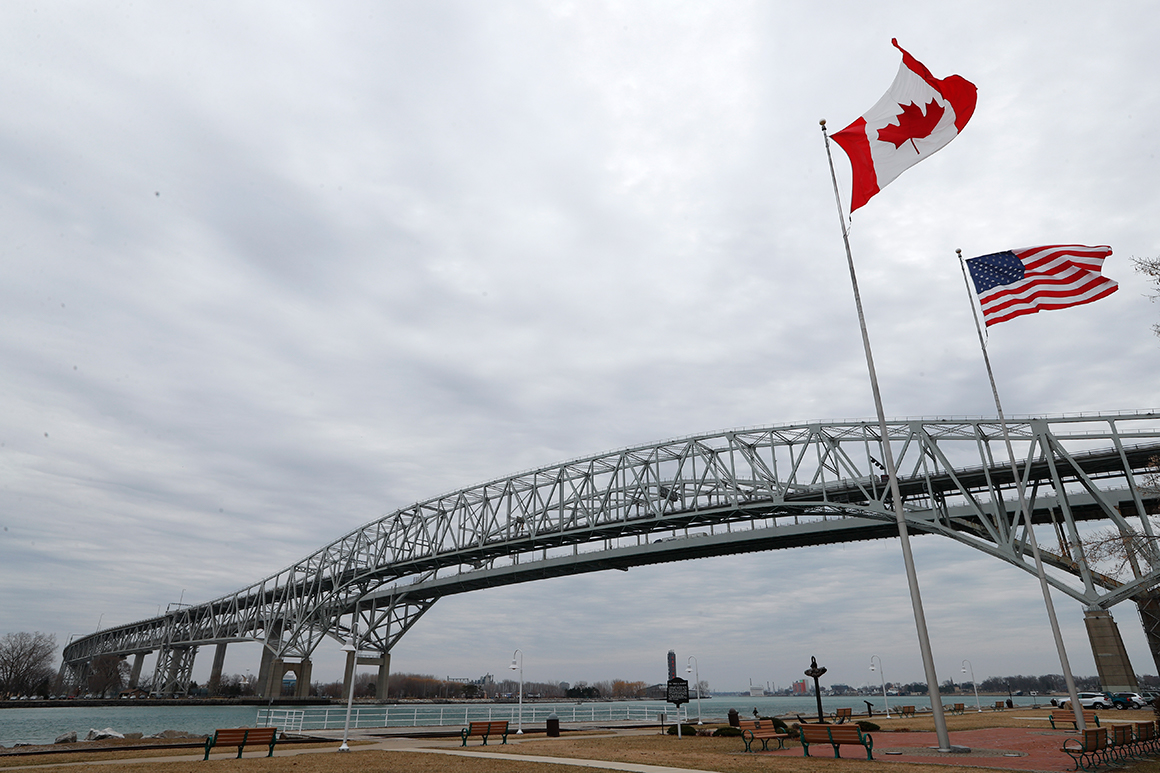
The Trump administration is planning to extend restrictions barring non-essential travel across the Mexican and Canadian borders until at least late August as coronavirus cases and deaths continue to spike in the U.S. and Mexico, according to three people familiar with the plans.
The U.S., in separate agreements with Mexico and Canada, will make a formal announcement before July 21 that non-essential travel will be restricted for at least another 30 days, the people said.
“It’s an almost certainty,” a senior administration official told POLITICO.
It will be the fourth time border restrictions have been extended since the partial closure was first announced in March as a measure to stop the spread of the coronavirus.
The U.S. Department of Homeland Security and the U.S. State Department did not immediately respond to requests for comment.
Asked on Monday if the travel ban on Canada would be extended, White House press secretary Kayleigh McEnany told reporters the administration had “no announcements now for our plans with Canada.”
Coronavirus cases in the U.S. are still rising rapidly as the nation has seen more than 3.3 million confirmed infections and more than 135,000 deaths. Mexico is experiencing a similar trajectory. On Sunday it overtook Italy as the country with the fourth-highest number of deaths — more than 35,000 — due to the coronavirus and 300,000 confirmed cases, figures widely thought to be underreported.
Canada, however, has largely flattened the epidemic curve in most of the country and faces significantly fewer cases. The U.S.’ northern neighbor has seen a total of 109,000 confirmed cases and almost 9,000 deaths.
Canadian Prime Minister Justin Trudeau on Monday said a decision on the partial border closure would be announced “in the coming days.”
“We’re going to continue to work hard to keep Canadians safe and to keep our economies flowing and we will have more to say later this week,” Trudeau said in a Monday morning press conference.
Privately, Mexican officials say the government has not pushed to loosen restrictions or reopen the border because of fears that the U.S. could send more cases to Mexico given the spikes in cases in border states like Arizona and Texas.
The Mexican Embassy did not respond to a request for comment.
The existing partial border closure does not affect trade or essential travel, including for health care workers living and working on opposite sides of the border. But it has effectively cut off southern and northern border towns from the vital economic lifeline of Mexicans and Canadians spending money at U.S. restaurants, hotels and retail stores.
Earlier this month, a bipartisan group of 29 lawmakers urged Acting Homeland Security Secretary Chad Wolf and Bill Blair, Canada’s public safety and emergency preparedness minister, to come up with a plan for slowly reopening the U.S.-Canada border.
“The continual 30-day extensions without a plan for how restrictions will be modified prolongs uncertainty for both communities and creates unnecessary tension as we approach each new expiration,” the lawmakers, led by Reps. Brian Higgins (D-N.Y.) and Elise Stefanik (R-N.Y.) wrote in a letter.
Meanwhile, Rep. Henry Cuellar (D-Texas) has urged the Trump administration to start working on plans to loosen restrictions at the U.S.’ southern border. Cuellar said he has already suggested that the U.S. and Mexico make modifications to the restrictions, such as allowing some tourists to cross and be tested quickly, but was met with resistance from the Trump administration.
“Why do they not just think outside the box? Why not do those quick tests, make sure they’ve got masks, make sure they do temperature checks? There’s a lot of things they can do … but they don’t want to think outside the box,” Cuellar said.
Source: politico.com
See more here: news365.stream






